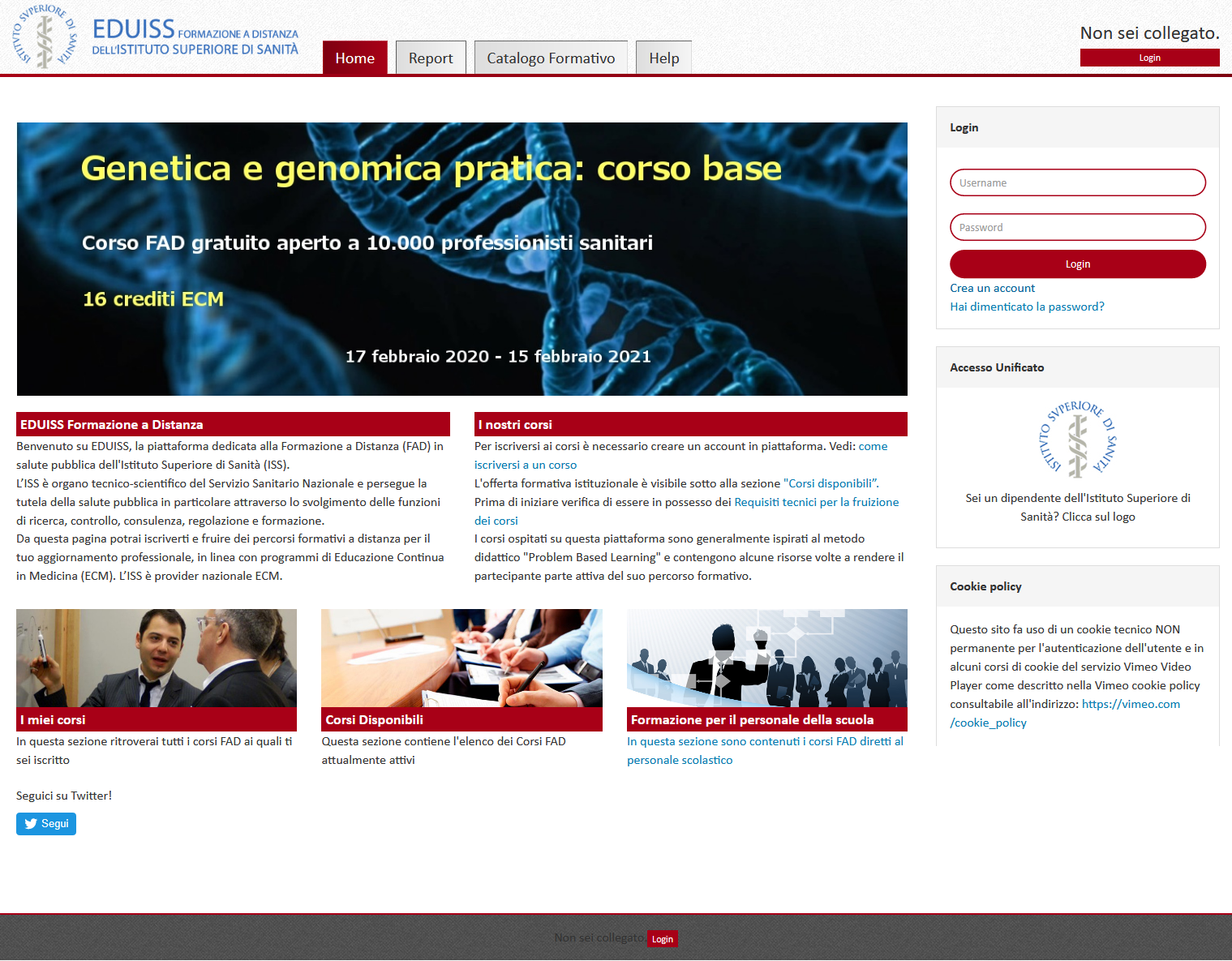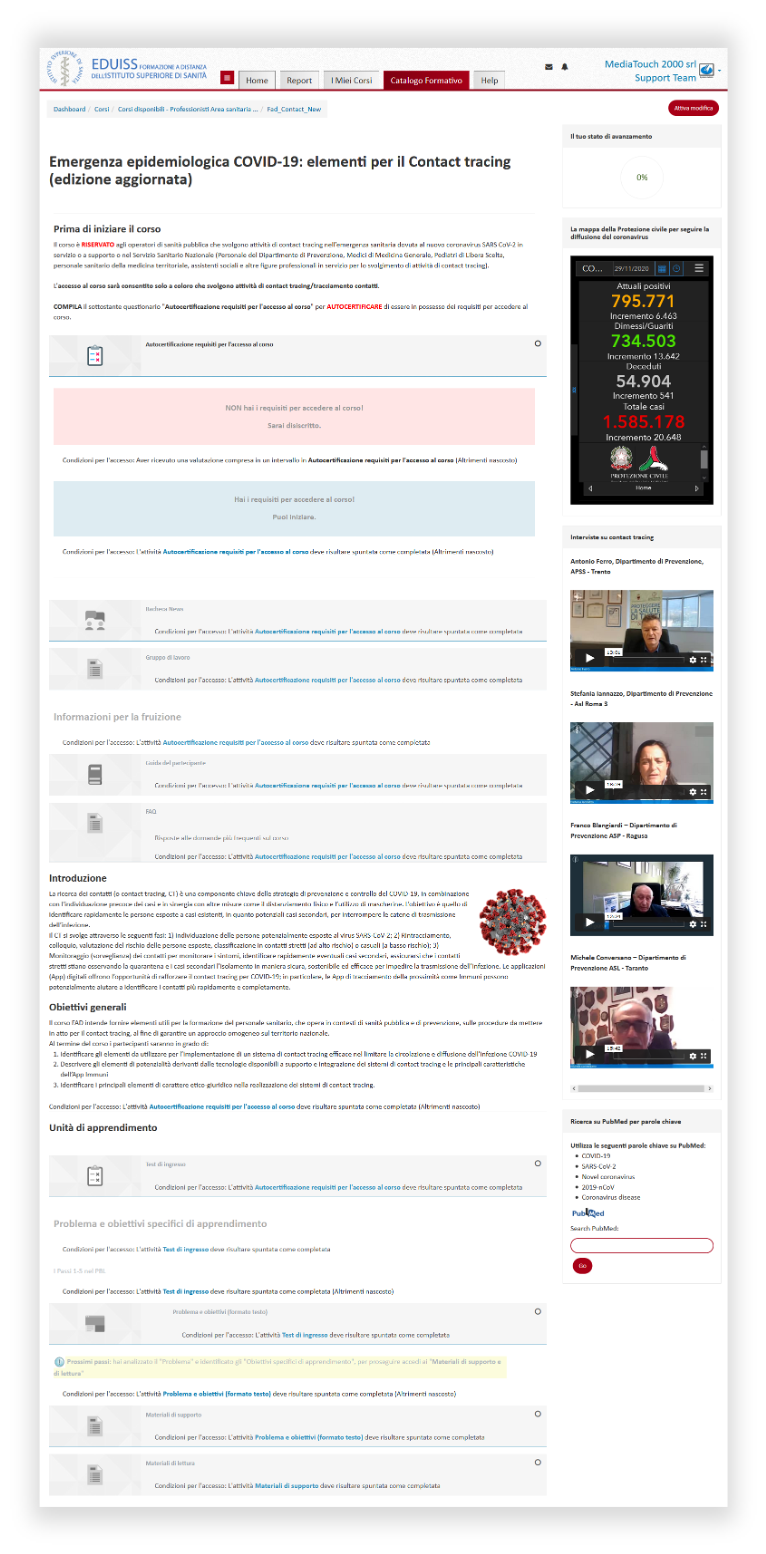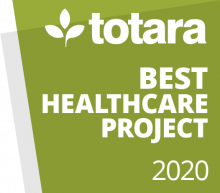The Italian National Institute of Health (ISS) is the main center for research, control and technical scientific advice on public health in Italy.
Since 2004 the ISS Training Office has been providing distance learning for health professionals and experimenting with innovative learning methods based on the integration of active learning methodologies such as Problem-Based Learning (PBL) with e-learning tools.
The challenge
On February 28th 2020, in response to the COVID-19 outbreak, the Italian National Institute of Health (ISS) promptly launched the first e-learning course to train healthcare professionals entitled “Health Emergency from the Novel Coronavirus SARS-CoV-2: Preparedness and Response.”
The main challenge was to be able to increase – in less than one month – site users from 40,000 to over 450,000.
The ISS’s aim was to ensure that the health professionals involved in the COVID-19 emergency could easily and profitably access the course on the EDUISS platform.
Other essential aspects included providing an active and dynamic learning environment, reproducing all the PBL steps and updating the participants on the continuous evolution of the pandemic scenario with appropriate tools.
Furthermore, due to the extreme importance of training in the pandemic context, it was crucial to constantly monitor the progress of participants’ activities with a robust, effective reporting system.
Solution

Totara Learn was selected for its flexibility, both regarding scalability and technical characteristics and for supporting PBL (Problem-Based Learning). The PBL cycle has been set up using Totara Learn.
Updates on COVID-19 were provided by forum news and other tools on the lateral blocks (interactive research on PubMED, dynamic maps on COVID-19 evolution, links to government sites, interviews with leading experts and latest Tweets).
The ISS made full use of Totara Learn’s features, including:
- The announcements forum for updates on COVID-19
- The book tool for the participant guide
- The quiz tool for the entrance test, post test and final certification test
- SCORM, file and HTML pages for the PBL cycle
- The feedback tool for the satisfaction questionnaire
- The certificate tool for the EDUISS certification
- A video plugin for video interviews
- The link block for links to government sites
- The RSS feed block for Twitter updates from government bodies
To monitor the progress of participants’ activities, the ISS used even more Totara tools:
- Completion report (course activity) and all the other standard tools for each single resource (quiz, feedback etc.)
- Totara Report Builder for the continuous monitoring of enrollment and completion trends and for the analysis of the demographic and professional participants’ characteristics
The results
The developments of the Sidel training portal have been gradually implemented, starting in 2017 and further improvements and developments guarantee the full functionality and updating of the system.
Between February 28th and April 28th 2020, the ISS launched the first distance course to train Italian healthcare professionals in response to the COVID-19 outbreak.

The course included three training units for a total of 16 hours based on the Problem-Based Learning (PBL) teaching method and was free of charge.
Throughout the delivery, the course significantly exceeded the projected participation rate. The number of participants has more than doubled, reaching more than 220,000 users just for the first edition, and keeping to increase in the following editions.
Data analyses show that more than 75% participants successfully completed the course and improved their professional knowledge with high satisfaction scores for course content, methodology and the platform itself.
Easy interaction with the platform, clear presentation of speakers, very effective “remote” teaching methodology. Compliments!
Learner

Every year Totara awards the best projects worldwide that innovate and tailor learning experiences to specific contexts.
This project has received the Totara official award as “Best Healthcare Project” in 2020.



